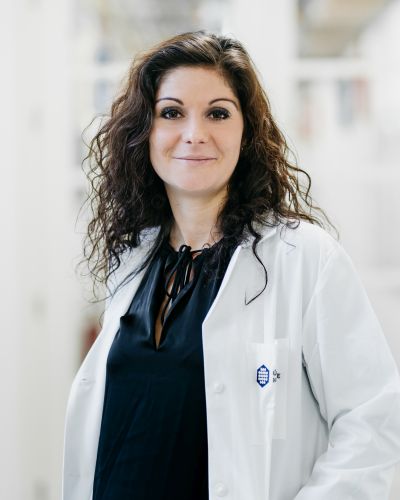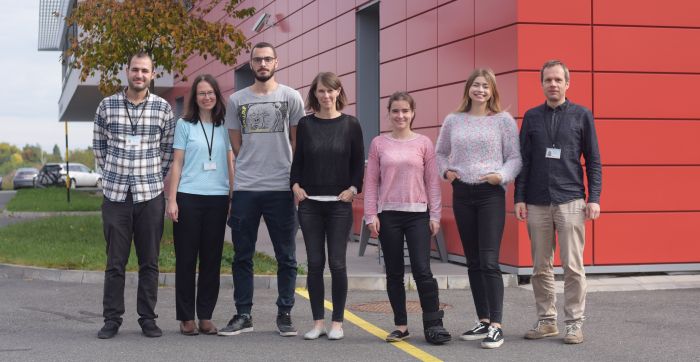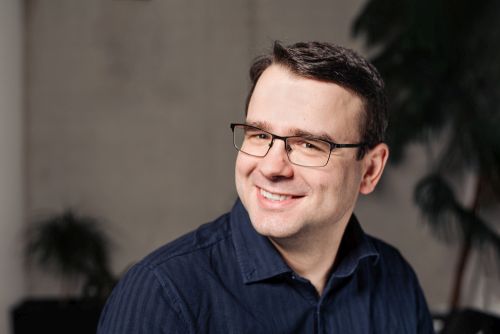
ERC grants for 3 experts from the Czech Academy of Sciences
14. 01. 2022
An effective storage of solar energy, reactions of cells to stress, new strategies against cancer. Those ideas scored well in the competition of more than 4000 proposals and won the ERC Starting Grant. Four Czech proposals succeeded, three of them were submitted by experts from the Czech Academy of Sciences.
Hana Cahová, Kateřina Rohlenová and Tomáš Slanina. They and their teams might be the ones who discover and describe the yet unknown, as only brilliant, original, and often also brave projects can be awarded by the European Research Council.
“The grants are focused to pursue the ‘high risk/high gain’ research. There is a high hope of a truly cardinal shift in the given scientific field.” - Eva Zažímalová, the President of the CAS.
This year, 397 early-career researchers from 22 countries won the generous ERC Starting Grants 2021.
The secrets of molecules at the end of the RNA

Hana Cahová leads the Chemical Biology of Nucleic Acids group at the Institute of Organic Chemistry and Biochemistry of the CAS.
The goal of her project that won the ERC grant is to uncover the secrets of the molecules at the end of the RNA in a cell, and their role in cellular reaction to stress conditions. Those molecules – known as the RNA caps – are very important structures which protect the RNA molecule against degradation from cellular enzymes.
Apparently, the caps have also other important functions, such as helping cells respond to their environment and stress conditions. It is very difficult to study them, though, because they are not easy to identify.
Hana Cahová and her team develop new techniques to capture those structures more easily and to shed light on the partners they react with and how.
“Revealing the role of RNA caps will contribute to our understanding of the cellular mechanisms triggered by stress, which offers a wide spectrum of possible applications,” says Hana Cahová.
An overlooked potential for new cancer treatment possibilities

Kateřina Rohlenová (in the middle of the photo) leads the Metabolism of healthy and tumour tissue at single cell resolution group at the Biotechnology and Biomedicine Centre of the CAS.
She and her team will investigate the metabolic communication in tumours to identify new strategies against cancer; especially the intercellular communication of nucleotides, the building blocks of the DNA and the RNA, that are essential for cancer cell proliferation.
„We will use the unique mouse model and methods with a high resolution on the level of single cell. Both will help us to understand the basic biology of the nucleotides exchange in tumours and the healthy tissue, to identify the Achilles heel of cancer cells in their natural environment, and to find new concepts for the therapy,” explains Kateřina Rohlenová.
Storing the solar energy right into chemical bonds

Tomáš Slanina, the leader of the Redox Photochemistry group at the Institute of Organic Chemistry and Biochemistry of the CAS, won the ERC Starting Grant for the possible solution of one of the greatest complications in the mass transition to sustainable energy sources, i.e. the possibility of stabilizing fluctuating production of solar energy and its efficient storage.
With his team, he develops a molecular system called SOLBATT for the transformation of light energy into chemical bonds and its subsequent conversion to electrical current through the use of organic redox switches.
Storing energy straight into chemical bounds offers a great potential. It represents a new possibility how to store the electricity on the spot of its origin with the help of a single solar battery. The use of such a solution in organic solar panels will help stabilize fluctuations in the production of solar energy.
“The five-year grant gives us the opportunity to focus on fundamentally new methods with big potential to advance our knowledge of the production, storage, and release of solar electric energy,” says Tomáš Slanina.
Text: Eliška Zvolánková, Division of External Relations, CAS Centre of Administration and Operations
Photo: Shutterstock, IOCB Prague, BIOCEV
Read also
- Evolution, alive and well. What lies at the heart of biodiversity?
- From an evolutionary POV, vision has a great benefit–cost ratio, researcher says
- Badminton buzz: Tournament draws 76 athletes from the Academy’s institutes
- Unique reproductive strategy confirmed in another frog species in Moravia
- Hydrochemist Martin Pivokonský on how to improve water and wastewater treatment
- Involved in groundbreaking research, Ukrainian archeologist now works at the CAS
- The first human presence in Europe securely dated to 1.4 million years ago
- The CAS visited by chess grandmaster and Russian opposition activist Kasparov
- The CAS will support scientists whose research is at risk in their home country
- Unravelling the mystery of biodiversity – with a little help from the fruit fly
The Czech Academy of Sciences (the CAS)
The mission of the CAS
The primary mission of the CAS is to conduct research in a broad spectrum of natural, technical and social sciences as well as humanities. This research aims to advance progress of scientific knowledge at the international level, considering, however, the specific needs of the Czech society and the national culture.
President of the CAS
Prof. Eva Zažímalová has started her second term of office in May 2021. She is a respected scientist, and a Professor of Plant Anatomy and Physiology.
She is also a part of GCSA of the EU.